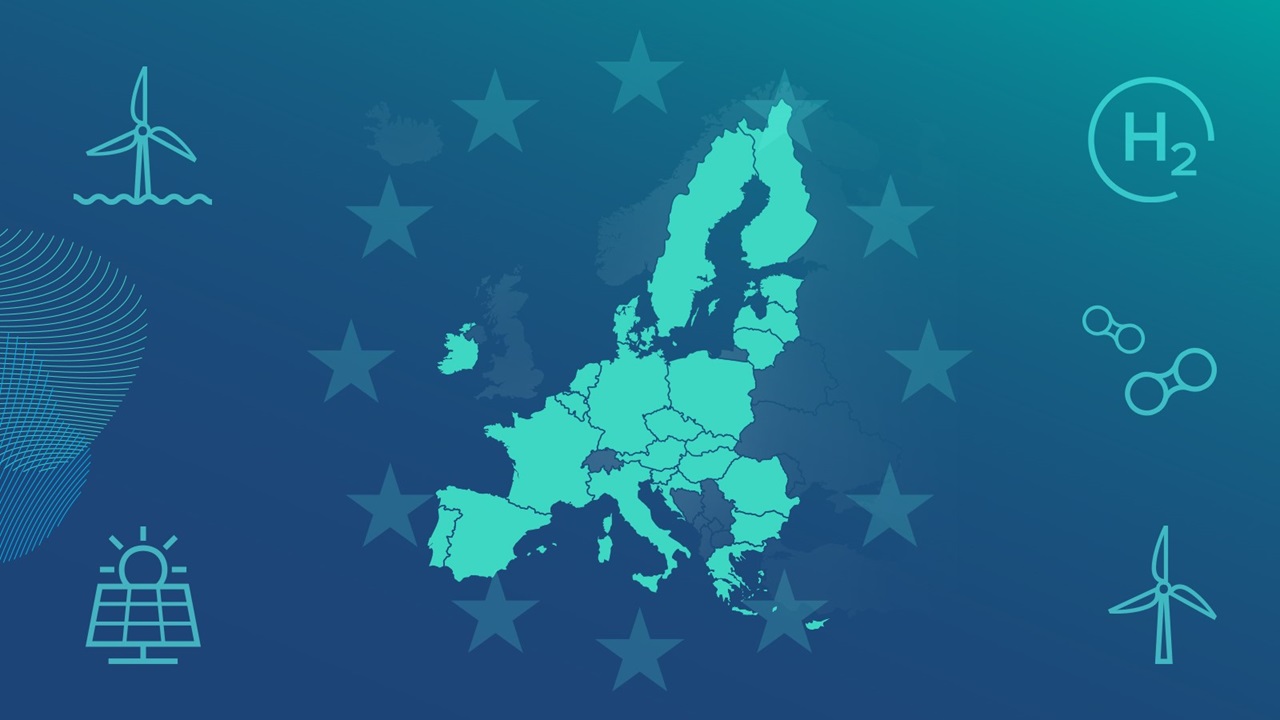Germany – The EU Commission hopes to advance its goals for supply security, independence from Russian fuel supplies, and ambitious climate targets with the REPowerEU initiative.
The initiative’s main goals are to boost renewable energy development and accelerate the hydrogen market’s growth. Nonetheless, the proposed delegated act, which specifies the future game rules for European hydrogen production, massively undermines these lofty objectives. Instead of speeding up the adoption of hydrogen, the regulation imposes unnecessary restrictions.
The delegated act specifies that, after a brief transition period, only electricity from newly constructed, unsubsidized wind and solar plants can be used to generate green hydrogen by 2026. Even if the planning and approval processes for new wind and solar power plants were to be accelerated in the future, green hydrogen production in large quantities would not be possible before 2030.
The idea that electrolysers can only produce hydrogen when new wind and solar farms are producing electricity almost simultaneously is also problematic. Electrolysers would have to sit idle during any extended calm period due to this temporal correlation. As a result of the more complex operations, the price of hydrogen would rise unnecessarily, making it nearly impossible to ensure a continuous supply to industry.
What is meant to be acceleration is actually slamming on the brakes. There is no direct coupling of generation from directly allocated renewables plants in other areas, such as electric mobility. Furthermore, from the perspective of the energy industry, this approach is completely unnecessary, because emissions trading regulates CO2 reductions and ensures that CO2 emissions are limited to the available number of allowances.
Switch to green hydrogen
Many other companies, including RWE, are willing to invest billions of euros to make the transition to green hydrogen a reality. Many industrial firms desire to convert their manufacturing processes. However, they must have confidence that green hydrogen will be available as soon as possible, in sufficient quantities, and at a reasonable price. As a result, industry has recently developed a number of constructive proposals for leveraging headroom when it comes to green hydrogen requirements. RWE will work hard in the coming consultation to achieve this, and hopes that political decision-makers will reconsider the current criteria proposals.
If Europe is to meet its ambitious climate goals, it will need a completely new approach going forward: there should be no restrictions on the use of electricity by producers and purchasers of green hydrogen. Instead, member states should factor in the additional electricity needed to ramp up electrolyser capacity in their national renewable energy targets. There would be no need for additional proof from the green energy community. The current revision of the Renewable Energy Directive (RED II) provides an opportunity to do so, and if implemented, will allow hydrogen’s potential to be fully realized.




